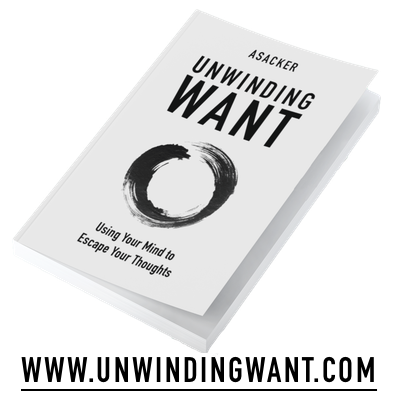“Is this not the true romantic feeling; not to desire to escape life, but to prevent life from escaping you.” ~ Thomas Wolfe
There’s a reason we binge-watch TV shows, obsess over political drama, fall into gossip loops, or spend hours scrolling through stories of other people’s chaos. Whether it’s Netflix, gambling, video games, or just aimless scrolling, drama gives us something deceptively comforting: escape.
When we’re bored, stressed, uncertain, or even just a little empty, our minds reach for stimulation. Not because it brings us peace, but because it distracts us from the silence underneath. Like a nurse distracting a patient before the needle goes in, our thinking mind says, “Look over here.” It shifts our attention away from the fear, away from the doubt, away from the mental challenge, away from the messy truth of being alive. It soothes us, but not in a way that heals—just in a way that manages.
And here’s the unsettling truth: your thinking mind doesn’t actually care about a full and meaningful life. It cares about safety. It cares about comfort. It doesn’t mind if you avoid your truth forever. Sure, it will have you chase goals and fantasies—careers, relationships, achievements—under the illusion that these things will finally make the fear go away. But that’s just another distraction. And in the meantime, to keep you sedated, it feeds you little hits of drama to keep the discomfort at bay.
Why do we take the bait? Because at some level, we crave aliveness. We crave intensity, tension, surprise. We want to feel something. But real life—real risk, real change, real emotional honesty—is messy and risky. So the mind offers a substitute: a controlled chaos, a simulated danger, a manufactured intensity. A plot twist on a screen, a trending scandal, a dramatic argument in the comment section—it feels alive, but it’s not.
And the cost? We forget what real living feels like. We start trading deep, focused work for pixelated performances. We start confusing stimulation for reality. We become experts in watching, reacting, escaping—but amateurs in creating, showing up, and doing the slow, unglamorous work of building an actual life.
Because being alive—truly alive—requires effort. It asks us to participate. To create instead of consume. To face what’s uncomfortable instead of running from it. To try, to fail, to practice, to show up again and again. That kind of life doesn’t hand itself over. You have to make it. And you never will if you’re constantly distracting yourself from the starting line.
The silence we avoid? It’s not the enemy—it’s the doorway. Because if we can stay with those quiet, uneasy moments long enough, something begins to happen. We start hearing the whispers of our own truth. We start feeling what’s actually there. And those feelings—raw, real, unfiltered—are the beginning of aliveness. Not the artificial kind. The kind that can remake a life.
So this is the choice: anesthetized survival or conscious creation. A loop of simulated drama—or the real, vivid, sometimes brutal process of becoming someone who lives life, fully present and wholly engaged.
And you, me, all of us—we can’t do both.
Stay passionate!






The alarming realisation that the thinking mind does not care for how meaningful or fulfilling our lives are. Oh how we think it has our best interests at heart.
Love (and hate) this so much. So very much on point.